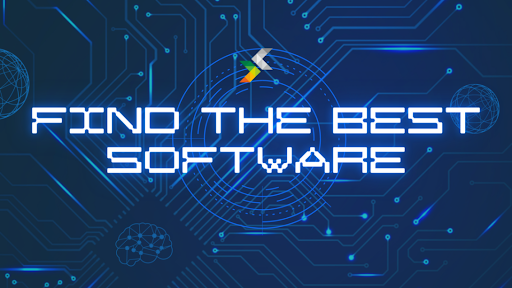
At a time when transformative technologies are transcending and innovating every single industry domain, the real estate sector is also ready to embrace this digital revolution with open arms. The fusion of cutting-edge technology trends and traditional real estate practices is enhancing convenience, efficiency, and transparency. Real estate software development trends like artificial intelligence, machine learning, augmented reality, virtual reality, the Internet of Things, and more have allowed this industry to boom emphatically and transform it to the next level.
Yes, we live in an era where virtual reality is transforming your property tours, blockchain is securing transactions and bringing transparency, and big data analytics enables property buyers and sellers to make informed decisions.
In this blog post, we will delve into the top trends fueling and disrupting the real estate industry. Real estate businesses can implement these technologies to revolutionize the way they buy, sell, or manage properties. The blog will also shed light on how the future of real estate will look in the upcoming years, propelled by innovative waves.
Artificial intelligence and Machine Learning Improve Efficiency and Decision-Making
Artificial intelligence and machine learning algorithms are integrated into the real estate industry to drive data-driven decisions, increase efficiency, and amplify user experiences. The real estate sector continues to evolve further with automated processes and improved accuracy.
- Artificial intelligence powered by machine learning algorithms provides you with accurate property valuations through real-time analysis of large datasets, such as property features, location, market value, and comparable sales.
- AI offers customers personalized property recommendations by understanding and analyzing their preferences and budget estimates.
- Machine learning algorithms also provide predictive analytics to identify the top real estate technology trends and make predictions, allowing real estate professionals and buyers to make informed decisions on making investments and understanding the opportunities, and pricing strategies.
- AI-based chatbots and virtual assistants automate and streamline customer interactions to answer queries, schedule property visits, and provide information about listings.
- Real estate companies also implement artificial intelligence and machine learning to detect and mitigate fraud, including risk assessment. These technologies analyze vital factors, such as transaction history to identify fraudulent activities and enhance overall security.
- Companies providing custom software development services integrate artificial intelligence and the Internet of Things to optimize and efficiently manage property operations. AI aligns with predictive maintenance to detect and address potential issues before they escalate, reducing the property value.
- AI algorithms help to streamline property searches based on customer preferences and requirements to refine and provide the best search results. It saves a lot of time for buyers and sellers and real-estate owners can deliver more relevant options.
- Natural Language Processing (NLP), a subset of artificial intelligence can understand, analyze, and simplify complex property contracts. It accelerates the due diligence process and legal work, minimizing the time and effort to view contracts.
Augmented Reality and Virtual Reality Enhance Property Viewing Experience
Real estate software development is also empowered by augmented reality and virtual reality technologies that have taken the property buying, selling, and viewing experience to the next level. It has also transformed the way real estate professionals, buyers, and sellers collaborate, without being physically present at the property site. AR and VR are making real estate more accessible and pronounced by offering new dimensions in the way the properties are viewed.
- Using virtual reality, customers can take an immersive property tour experience from anywhere in the world, getting transported into a realistic three-dimensional arena and accessing a comprehensive 360-degree view. This proves beneficial for international property buyers.
- Virtual reality also facilitates property showcases, enabling users to interact with different elements of the property.
- AR and VR enable remote collaboration where all stakeholders like real estate agents, developers, clients, and architects can have virtual meetings and discuss progress and modifications related to property in real time without making a physical presence.
- Property buyers can virtually explore the site multiple times before shortlisting their desired choices and making on-site visits.
- Augmented reality, one of the top real estate technology trends allows buyers to explore neighborhoods and surrounding areas. They can avail real-time information on local amenities, such as markets, schools, banks, and others, helping buyers make informed decisions.
Blockchain Technology Enhances Transparency and Security in Transaction Process
Blockchain technology is revolutionizing and reshaping the real estate industry with unprecedented levels of transparency, security, and optimizing processes. Real estate software development companies are increasingly adapting blockchain technology to expand investment opportunities and transform the way properties are brought, sold, and managed in this era of digital innovation.
- First, blockchain technology ensures improved transparency through a decentralized and immutable ledger, recording all transactions, which is easily accessible, tamper-proof, and free from risks.
- Custom software development services focus on providing peer-to-peer ownership transfers, without the need for any middlemen or intermediaries. The automation of ownership transfer takes place through smart contracts, minimizing costs and delays.
- Another blockchain process tokenization helps owners to gain fractional ownership, wherein they can purchase property fractions, enabling the democratization of real estate investment and increasing liquidity in the market.
- Real estate software development and blockchain technology join hands to provide robust and fortified security through cryptographic features, where all recorded transactions remain tamper-proof. Also, advanced encryption safeguards sensitive information and personal data, eliminating the risks of cyber-attacks.
- Blockchain provides cross-boundary transaction facilities, mitigating geographical barriers and currency conversion challenges. It allows users to buy properties in other countries without any hassle.
- Due diligence facility in blockchain speeds up the property verification process. It also provides the benefit of anti-money laundering and Know-Your-Customer (KYC) process.
Big Data Analytics Augments Customer Experience and Informed Decision-Making
Big Data Analytics is one of the critical real estate software development trends that has taken customer experience and interaction to the next level through real-time analysis and providing personalized preferences and feedback. Real estate companies can tailor individual requirements and offer timely assistance throughout the buying, selling, or renting process.
- Big data analytics allow real estate companies to access real-time insights into the latest and top real estate technology trends and analyze large volumes of data, enabling users to make informed decisions.
- Buyers can get enhanced and accurate property valuations that help them to negotiate the price of the property.
- Big Data Analytics also enables real estate companies to target more potential buyers through real-time data insights that help them generate more valuable leads. It can also help them create customized marketing campaigns and reach the right audience segment.
- Big Data Analytics also plays a pivotal role in mitigating risks and optimizing investment opportunities. It analyzes the market dynamics and economic indicators so stakeholders can make the best decisions on property investments.
Conclusion
In addition to these emerging real estate industry trends, there are various other technologies, fueling this sector. These include the Internet of Things (IoT), which efficiently manages the properties, cloud computing that improves scalability, and smart contracts streamlining transactions. Custom software development services companies are also integrating comprehensive cybersecurity measures for data protection. According to a recent report, the current market value of real estate software development stands at $10.89 billion, which is expected to grow up to $25.39 billion by 2030 at a CAGR of 12.8%. Implementing these trends will help to bring your real estate to the forefront of innovation to shape a more efficient, transparent, and user-friendly real estate experience.

